
It’s math o’clock!
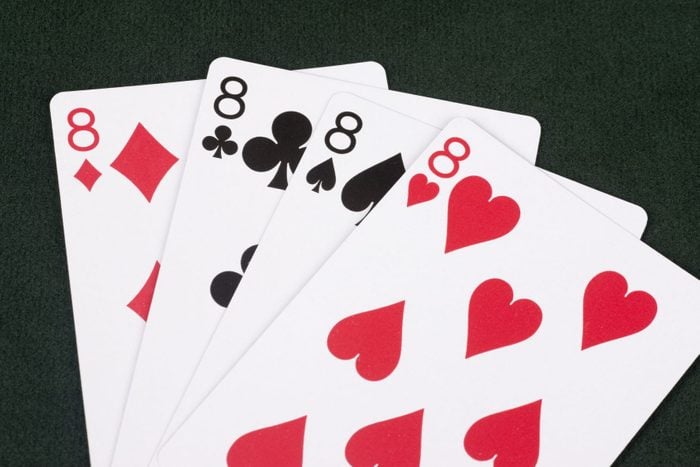
Easy math riddles: Crazy 8s
Using only addition, add eight 8s to get the number 1,000.
Answer:
888 + 88 + 8 + 8 + 8 = 1,000. This is the kind of number riddle you can work out with times tables, or by simple logic. First, get as close to 1,000 as you can (888). From there, it’s easy to figure out the rest.
RELATED: Math Puzzles

Easy math riddles: Farm life
In reply to an inquiry about the animals on his farm, the farmer says: “I only ever keep sheep, goats, and horses. In fact, at the moment they are all sheep bar three, all goats bar four, and all horses bar five.” How many does he have of each animal?
Answer:
The farmer has 3 sheep, 2 goats, and 1 horse. You can solve this easy math riddle with a quick hypothetical. Take sheep: we know that there are three animals that are goats and horses, so we suppose there are two goats and one horse. Checking this hypothesis gives us three sheep, which works out because there are four non-goats: three sheep, and one horse! Now that you know the answer to this one, try solving these other animal riddles.

Easy math riddles: Age gap
One brother says of his younger brother: “Two years ago, I was three times as old as my brother was. In three years’ time, I will be twice as old as my brother.” How old are they each now?
Answer:
One way to solve this math riddle is to use even numbers: The older brother will be twice as old as his younger brother in three years’ time. This immediately rules out the older brother currently being 8, 11, and 14, so he must be 17, and the younger brother 7. Two years ago, they were 15 and 5 respectively, and in three years’ time, they will be 20 and 10.
RELATED: Logic Puzzles

Easy math riddles: Perplexing problem
I add six to eleven, and get five. Why is this correct?
Answer:
This numbers riddle is designed to trip you up! You have to think more broadly. When it is 11 a.m., adding six hours makes it 5 p.m. Check out these riddles for adults that’ll really test your smarts.

Easy math riddles: Inheritance
Old Granny Adams left half her money to her granddaughter and half that amount to her grandson. She left a sixth to her brother, and the remainder, $1,000, to the dogs’ home. How much did she leave altogether?
Answer:
This one might have tripped you up! But the trick is not to focus on the hypothetical amounts, but on the fractions: Adding one half, one quarter, and one sixth tells us that the total is a fraction of twelfths (2+4+6=12). You can also think about it as 6/12, 3/12, 2/12, which equals 11/12. If the remainder is $1,000, that must be one-twelfth, so the total is $12,000.
RELATED: Best Riddles for Kids
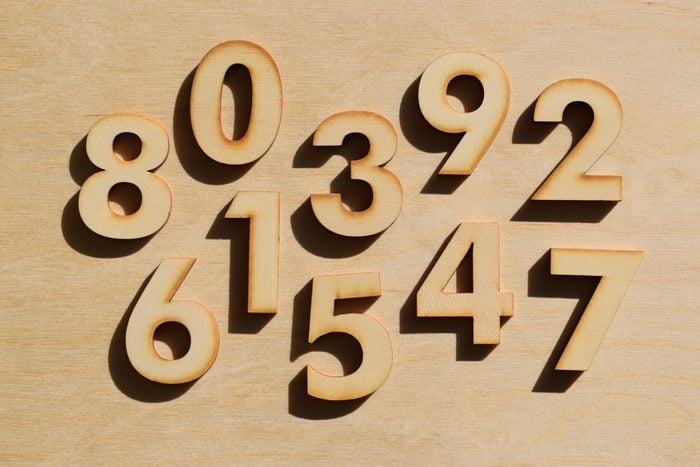
Easy math riddles: What’s the frequency?
What single digit appears most frequently between and including the numbers 1 and 1,000? Hint: look for a pattern!
Answer:
The most common digit is 1! Did you figure out why? Every number 1-9 appears exactly the same number of times in every ten numbers. But because we included the number 1,000, there’s an extra occurrence of the number 1. In total, the number 1 appears 301 times, and every other number appears 300 times.

Easy math riddles: Egg equation
If a hen and a half lay an egg and a half in a day and a half, how many eggs will half a dozen hens lay in half a dozen days?
Answer:
Two dozen. If you increase both the number of hens and the amount of time available four-fold (i.e., 1.5 times 4 equals 6), the number of eggs increases 16 times. 16 x 1.5 = 24.
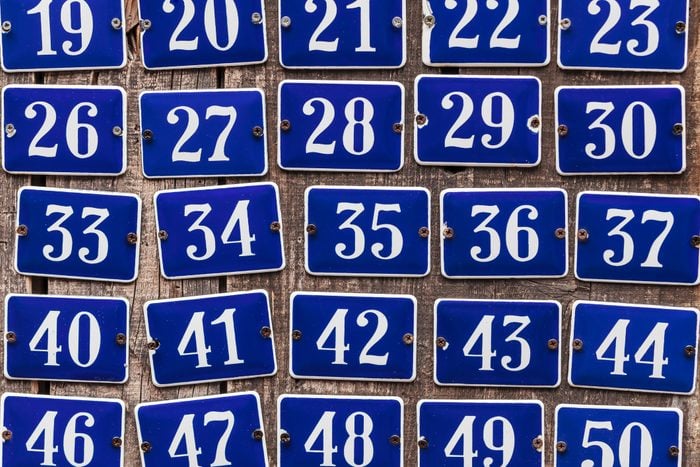
Hard math riddles: House numbers
My twin lives at the reverse of my house number. The difference between our house numbers ends in two. What are the lowest possible numbers of our house numbers?
Answer:
These math riddles aren’t easy to solve! The lowest possible numbers for the houses are 19 and 91. The difference is 72.

Hard math riddles: Hotel stay
Three friends are on a road trip, and they rent a triple room for a night. When they get to the hotel, they pay the fee of $30 and go up to their room. The porter brings up their bags and refunds them $5 because the hotel is running a weeknight special. The three friends each keep one of the dollars and give the porter a $2 tip. Later, they sit down to work out their expenses for the weekend and find they have a problem.
They each paid $10 for the room and got $1 back each, making their contributions $9. Then they gave the porter a $2 tip. However, 9 times three is 27, plus two is $29. Where did the extra dollar go?
Answer:
This one is a bit twisty, but what it boils down to is that the three friends’ math is wrong. They didn’t spend $29, they spent $27: $25 on the room, and $2 for the porter’s tip. The three remaining dollars were returned to them!
RELATED: Detective Riddles

Hard math riddles: Card games
A small number of cards has been lost from a complete pack. If I deal among four people, three cards remain. If I deal among three people, two remain and if I deal among five people, two cards remain. How many cards are there?
Answer:
This one is pretty tricky, but the answer is: There are 47 cards. To get the answer, you need to know that there are 52 cards in a pack. Then, find the multiples of four, three, and five closest to that number, and see if any of them are the same. For example, you can deal 42, 44, and 48 cards amongst four people, which would mean 9, 5, or 1 cards is missing (with three remaining). However, the only one that works for multiples of three and five people is when five cards are missing, which gives us a total of 47 cards.
RELATED: The Best Two-Player Card Games
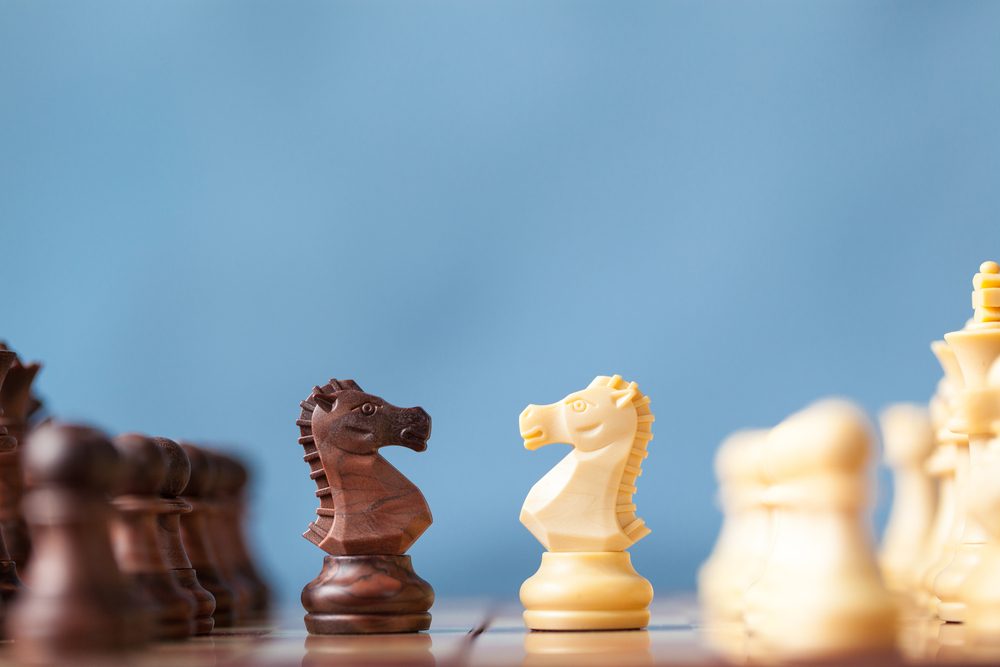
Hard math riddles: Knight moves
I have a calculator that can display ten digits. How many different ten-digit numbers can I type using just the 0-9 keys once each, and moving from one keypress to the next using the knight’s move in chess? (In chess, the knight moves in an L shape: one square up and two across, two squares down and one across, two squares up and one across, and other like combinations.)
Answer:
You can form the numbers 5034927618 and 5038167294. You can also form their reverses: 8167294305 and 4927618305. Hence four different numbers can be made. The key point is to realize that the number must start or end on the “5” key, followed/preceded by the ‘0’ key, otherwise, there is no way of using all ten keys during the route.
RELATED: Easy Math Tricks

Hard math riddles: Three’s company
You know 2 + 2 comes to the same as 2 x 2. Now find a set of three different whole numbers whose sum is equal to their total when multiplied.
Answer:
The three different whole numbers whose sum is equal to their total when multiplied are 1, 2, and 3. Need more riddles? See how many of these Bible riddles you can solve.
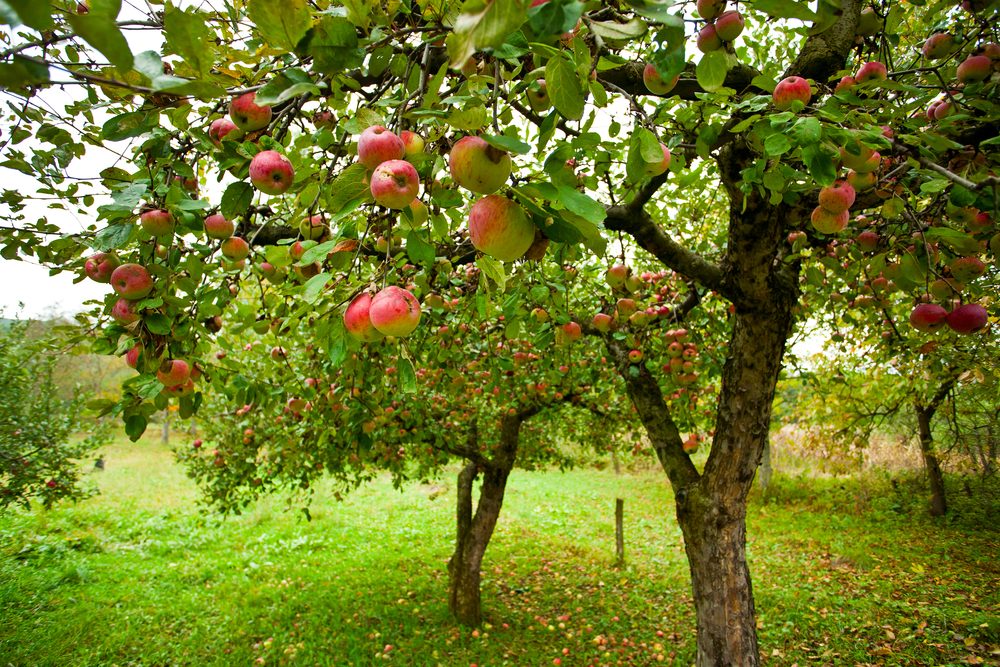
Hard math riddles: Apple harvest
Mrs. Jones was very proud of her apple tree. One autumn, after harvesting her apples, she called her three sons together. “Here are 150 apples,” she said. “I want you to take them to the market tomorrow and sell them for me.” She gave Paul 15 apples, Nick 50, and Ben 85. “Your job,” added Mrs. Jones, “is to sell the apples in such a way that each of you brings home the same amount of money.” How do they do it?
Answer:
The first buyer purchases 12 dozen apples at $1 per dozen. Paul sells him one dozen and has three apples left; Nick sells him four dozen and has two apples left; and Ben sells him seven dozen and has one apple left. Then a second buyer comes along and buys all their remaining apples for $3 apiece. The three brothers head home with $10 each.
RELATED: The Hardest Puzzle Ever

Hard math riddles: Seven times
What is the smallest whole number that is equal to seven times the sum of its digits?
Answer:
The answer to this math riddle is 21. You probably just guessed to answer this math riddle, which is fine, but you can also work it out algebraically. The two-digit number ab stands for 10a + b since the first digit represents tens and the second represents units. If 10a + b = 7(a + b), then 10a + b = 7a + 7b, and so 3a = 6b, or, more simply, a = 2b. That is, the second digit must be twice the first. The smallest such number is 21. Check out these brain teasers if you really want to give your brain a workout.

Hard math riddles: Lunch money
John noticed that the amount he was paying for his lunch was a rearrangement of the digits of the amount of money he had in his pocket, and that the money he had left over was yet another rearrangement of the same three digits! How much money did John start with?
Answer:
John started with $9.54. The money can be written with just three digits, so it must be between $1.01 and $9.99. Trial and error shows that there is only one set of numbers that fits this question: $9.54 = $4.59 + $4.95.
RELATED: Einstein’s Riddle
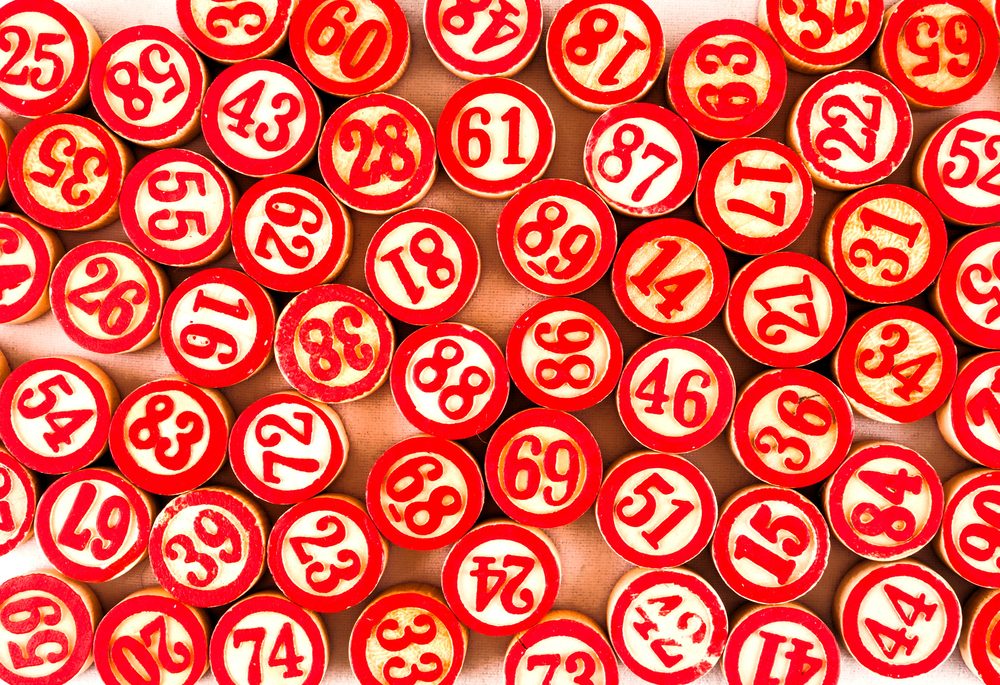
Hard math riddles: Upside down numbers
What is the smallest number that increases by 12 when it is flipped and turned upside down?
Answer:
The answer is 86. When it is turned upside down and flipped, it becomes 98, which is 12 more than 86.
NEXT: Long Riddles